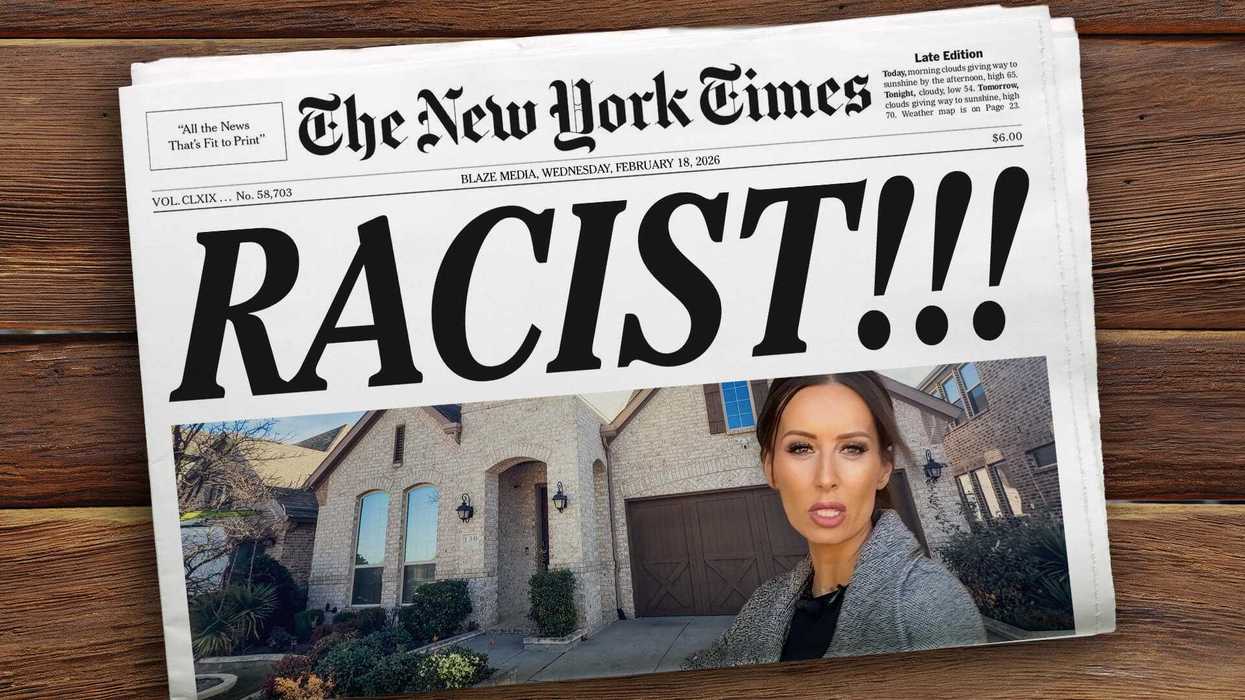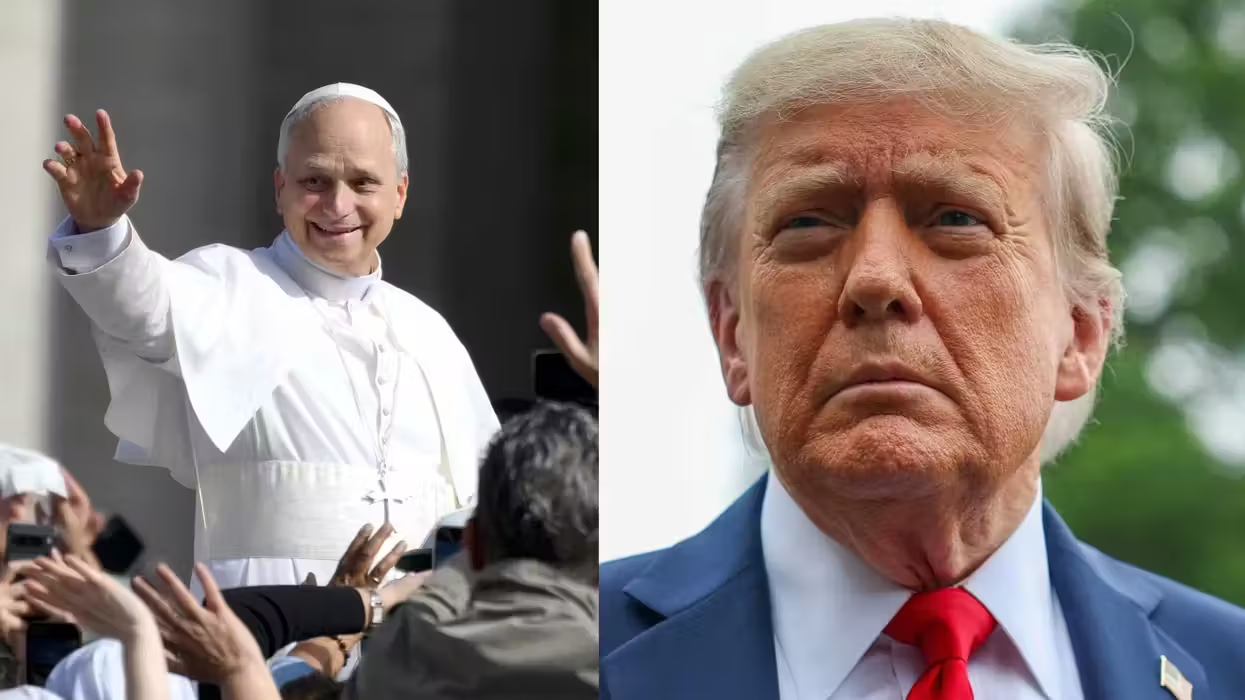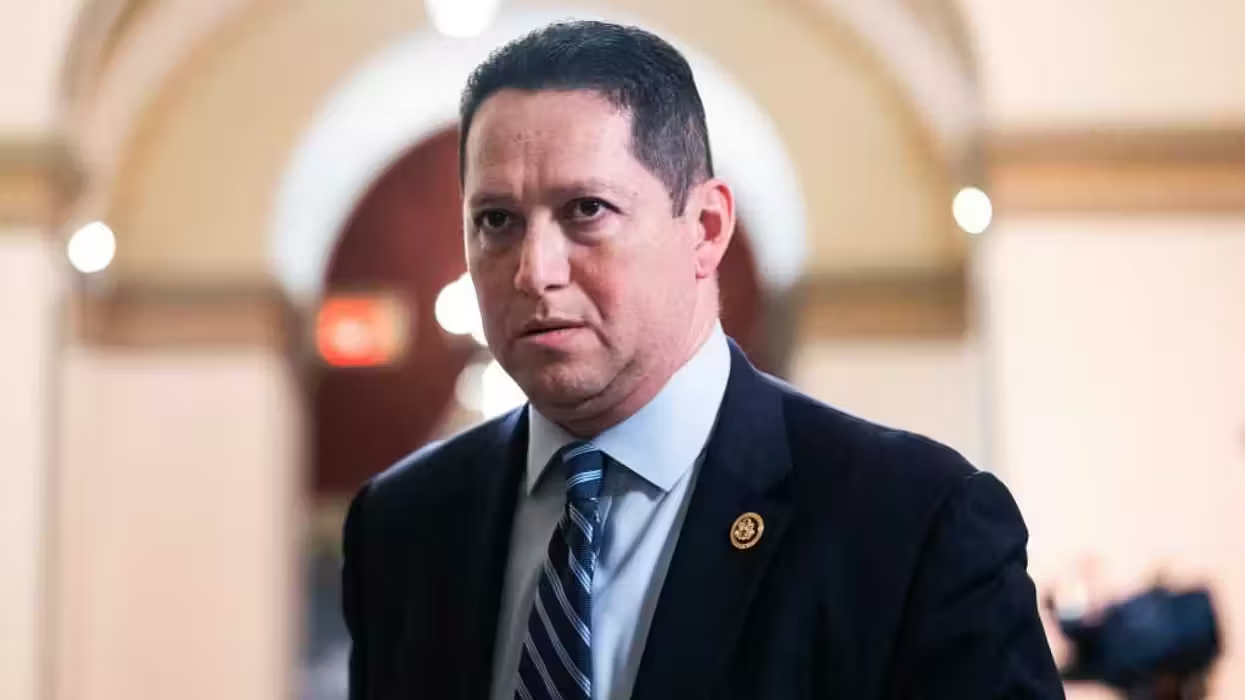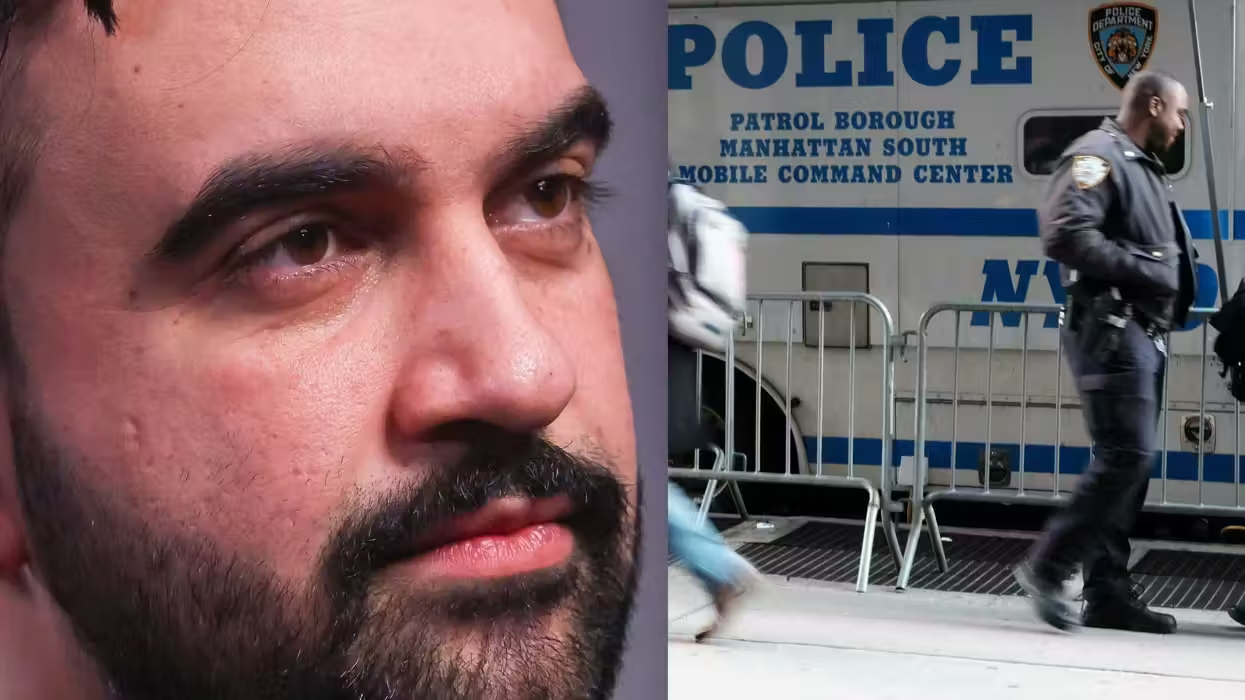
© 2026 Blaze Media LLC. All rights reserved.
'Christians…Are Not the Ones Who Suffer': Opponents Clash Over State of Religious Liberty in America
June 11, 2014
"A few anecdotes do not make a war on Christianity."
The deep divide over free speech and the First Amendment was on full display Tuesday when witnesses testified about the state of religious liberty in the United States at a hearing held by the House Subcommittee on the Constitution and Civil Justice.
While representatives like Mathew Staver of Liberty Counsel and Kim Colby of the Christian Legal Society highlighted their views on policies impacting the Christian faith, the Rev. Barry Lynn, president of Americans United for Separation of Church and State, had an entirely different take.
"Those in the majority faith -- Christians like myself -- are not the ones who suffer," he said. "They have no serious impediments."
 In this image provided by Liberty University, Liberty University attorney Mathew Staver, answers reporters questions outside a federal courthouse in Richmond, Thursday May 16, 2013, after the appeals court held a hearing on the schools lawsuit challenging the Obama administration s health care reform law. Staver's wife, Anita Staver, is at right. (Christopher Breedlove/AP)
In this image provided by Liberty University, Liberty University attorney Mathew Staver, answers reporters questions outside a federal courthouse in Richmond, Thursday May 16, 2013, after the appeals court held a hearing on the schools lawsuit challenging the Obama administration s health care reform law. Staver's wife, Anita Staver, is at right. (Christopher Breedlove/AP)
While Lynn admitted that there are occasional errors at the hands of government officials that do, in turn, have an impact on Christians, he added, "A few anecdotes do not make a war on Christianity."
His concern was, instead, for nontheists and minorities who he believes are often relegated and targeted, citing Muslims, for example, who have sometimes faced difficulties in building mosques in locations across the country.
Lynn also hit back at the Supreme Court for its recent Greece v. Galloway ruling in favor of prayer at government meetings, claiming that the majority was on the wrong side; his organization represented the plaintiffs in the case.
As for the contraceptive mandate and other points of contention, Lynn argued that private businesses like Hobby Lobby shouldn't be exempt.
He also had a fascinating clash later on in the hearing over Christianity and salvation with Texas Rep. Louie Gohmert, as TheBlaze previously reported.
Watch that below:
Staver, who started the witness testimonials, placed his focus, instead, on the Christian faith, saying that the "threat to religious freedom has reached unprecedented levels" and claiming that some Americans have been "coerced to go against [their] core values."
"These threats are more significant and severe than at any time in recent history," he added.
From Obamacare's contraceptive mandate to bans on reparative therapy for young Americans, he cited restrictions on traditional Christian values that have emerged of late.
"The freedom of religious business owners with regards to their rights in operations are also under threat," Staver said, in reference to business owners who have come under social and legal fire for declining services for gay and lesbian weddings.
"Religious freedom is our freedom," he concluded. "It is a freedom, I think, that is critically under assault."
TheBlaze's Elizabeth Kreft caught up with subcommittee chairman Rep. Trent Franks (R-Ariz.) before the hearing as well. See what he had to say about religious freedom below:
Colby focused, among other subjects, on the religious crackdowns that the Christian Legal Society believes are occurring on college campuses, among other issues.
Speaking specifically about Vanderbilt University in Nashville, Tennessee, where a debate has raged the past few years over controversial non-discrimination policies, Colby expressed her fears over free-speech crackdowns.
"The exclusion of religious student groups from college campuses because they require [leaders] to share the group's beliefs," she said. "[Vanderbilt] administrators told a Christian student group that it could remain a recognized student organization only if it deleted five words from its constitution -- 'personal commitment to Jesus Christ.'"
Colby continued, "At too many colleges, religious student groups are being told that they cannot meet on campus if they require their leaders to agree with the groups’ religious beliefs. But it is common sense and basic religious liberty -- not discrimination -- for religious groups to expect their leaders to share their religious beliefs."
Watch the entire testimony below (starts around the 1:30 mark):
The differences between the points made by Staver and Colby and Lynn show that the ongoing debate over the First Amendment and free speech is nowhere near an amiable conclusion.
The two sides couldn't be further apart in addressing how they view the Constitution. While Staver and Colby focused on how the majority faith has been marginalized, Lynn dismissed their contentions and focused instead on minority faiths.
--
Front page image via Shutterstock.com
Want to leave a tip?
We answer to you. Help keep our content free of advertisers and big tech censorship by leaving a tip today.
Want to join the conversation?
Already a subscriber?
Billy Hallowell is a digital TV host and interviewer for Faithwire and CBN News and the co-host of CBN’s "Quick Start Podcast."
Billy Hallowell
Billy Hallowell is a digital TV host and interviewer for Faithwire and CBN News and the co-host of CBN’s "Quick Start Podcast."
more stories
Sign up for the Blaze newsletter
By signing up, you agree to our Privacy Policy and Terms of Use, and agree to receive content that may sometimes include advertisements. You may opt out at any time.
Related Content
© 2026 Blaze Media LLC. All rights reserved.
Get the stories that matter most delivered directly to your inbox.
By signing up, you agree to our Privacy Policy and Terms of Use, and agree to receive content that may sometimes include advertisements. You may opt out at any time.






